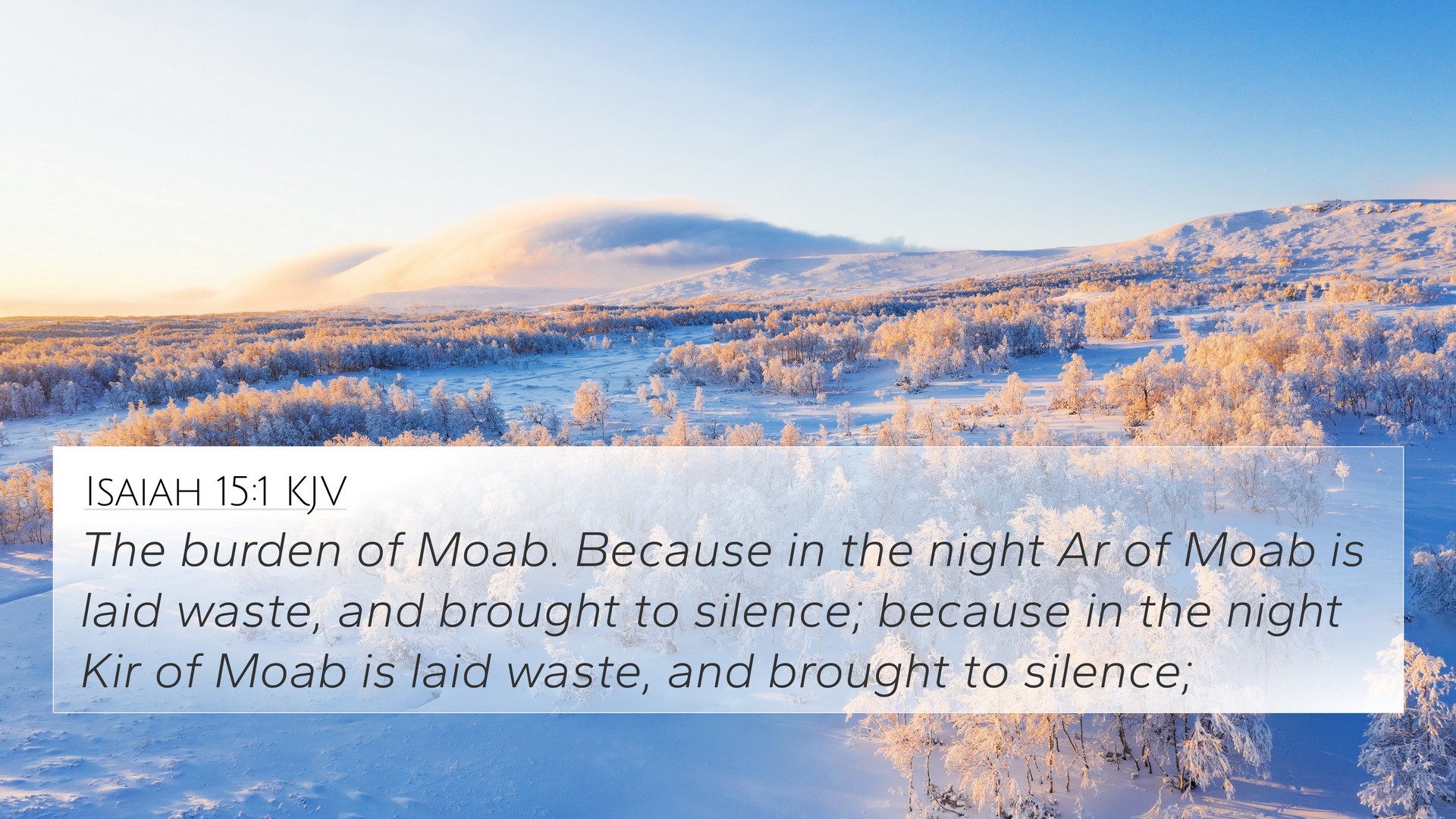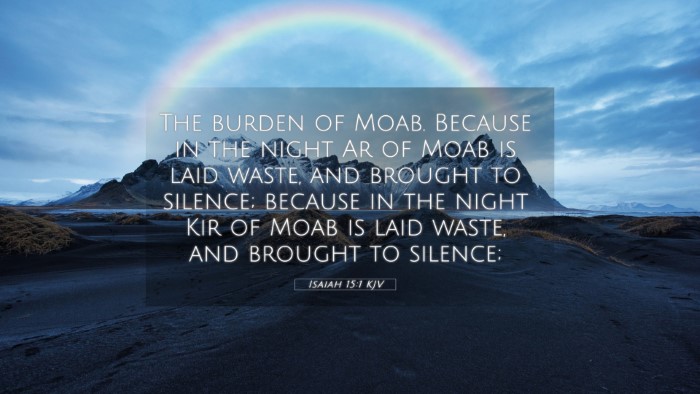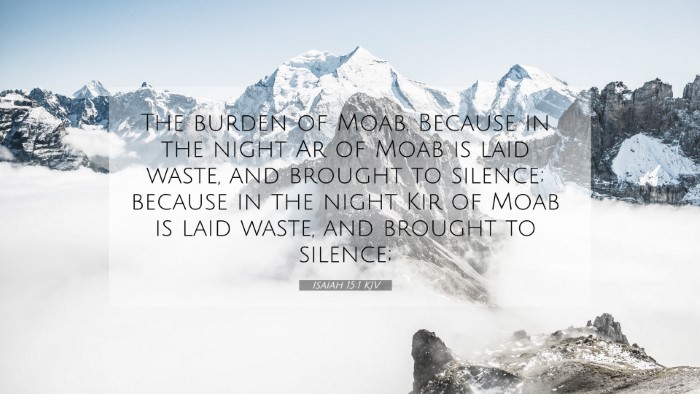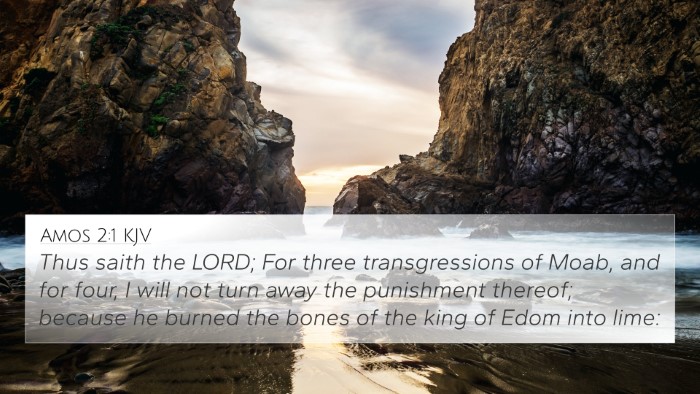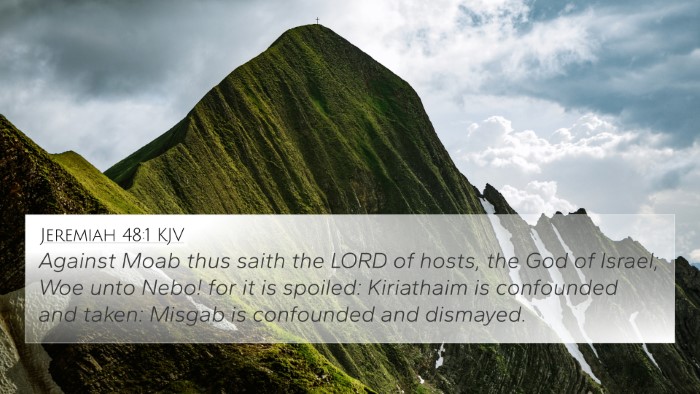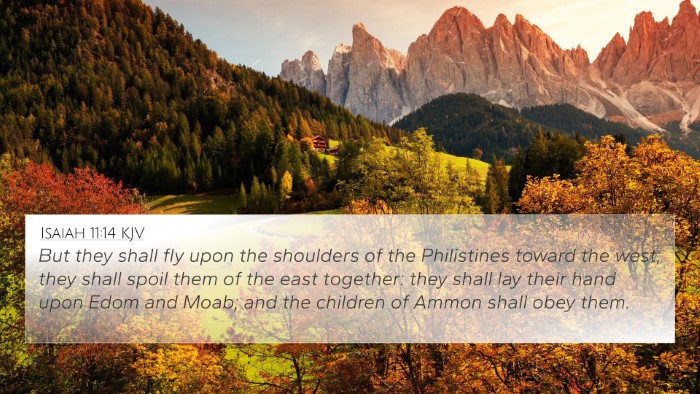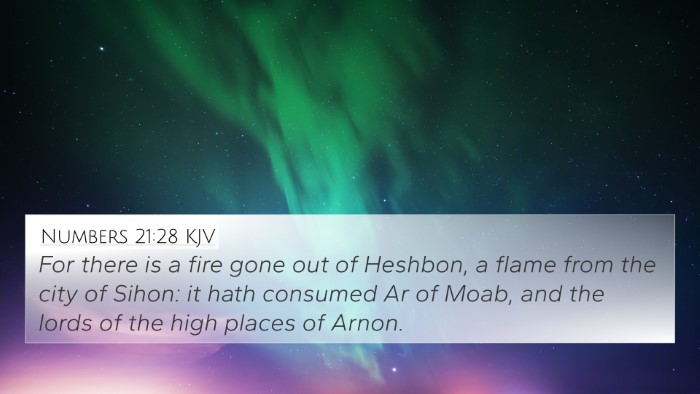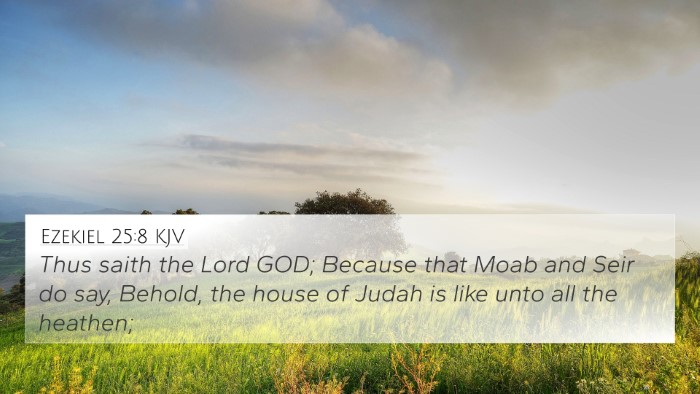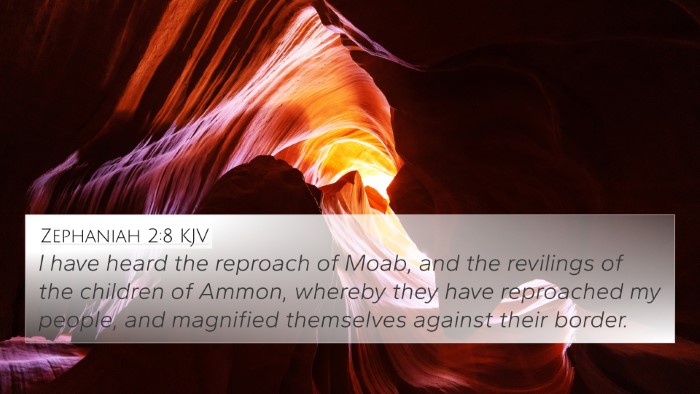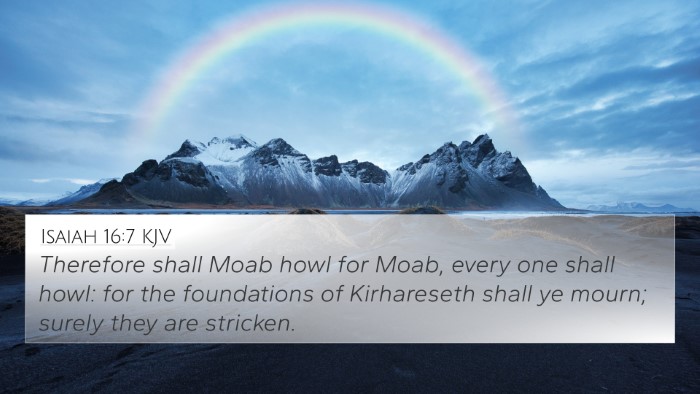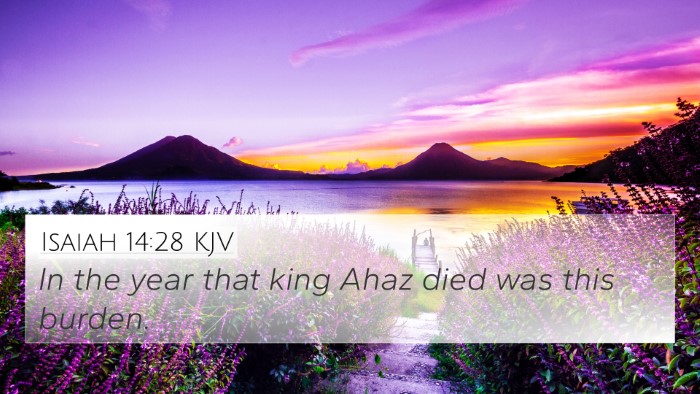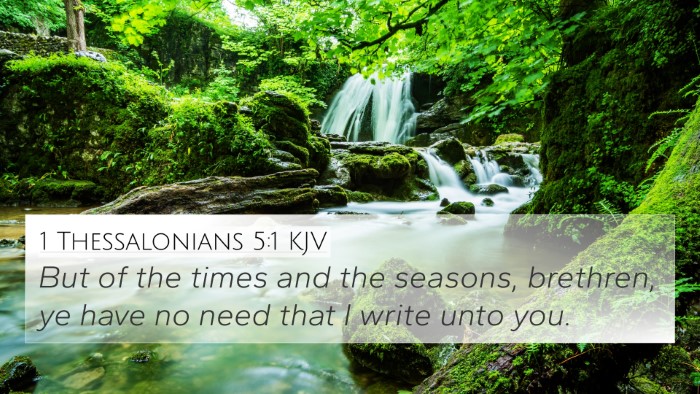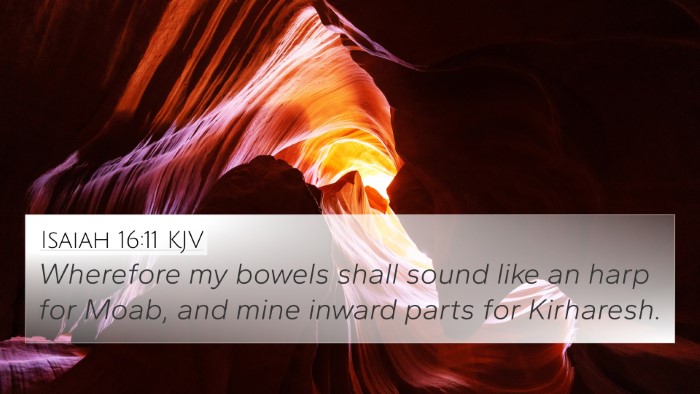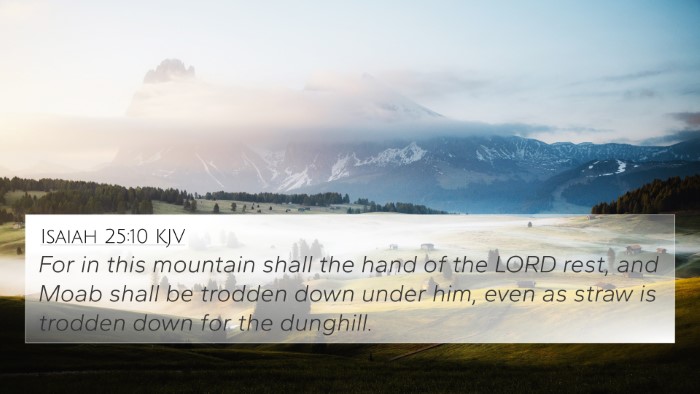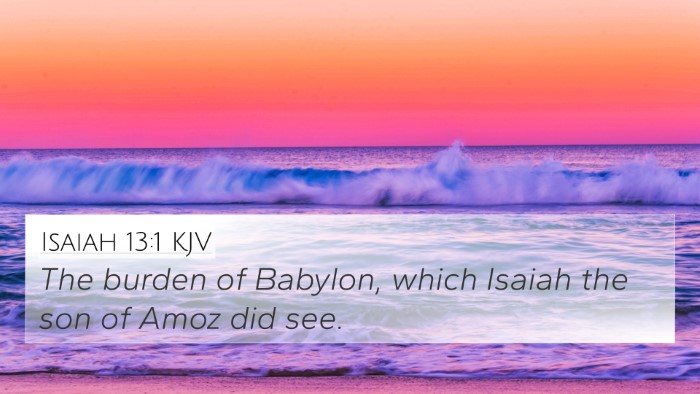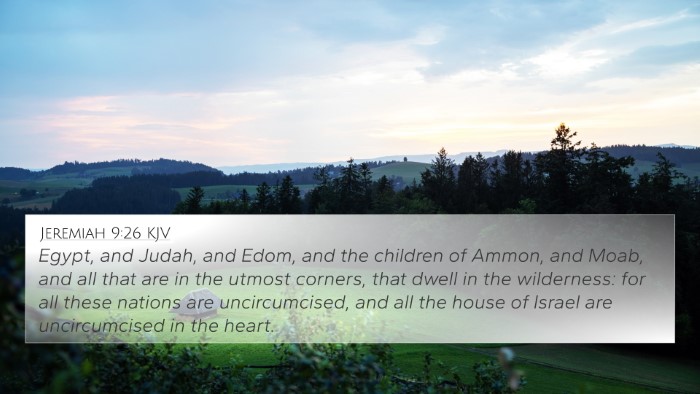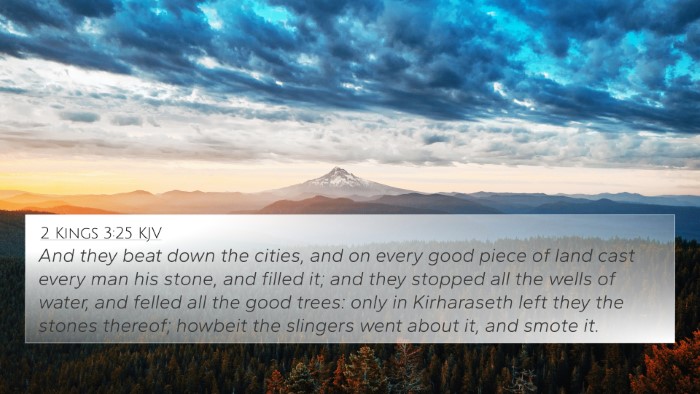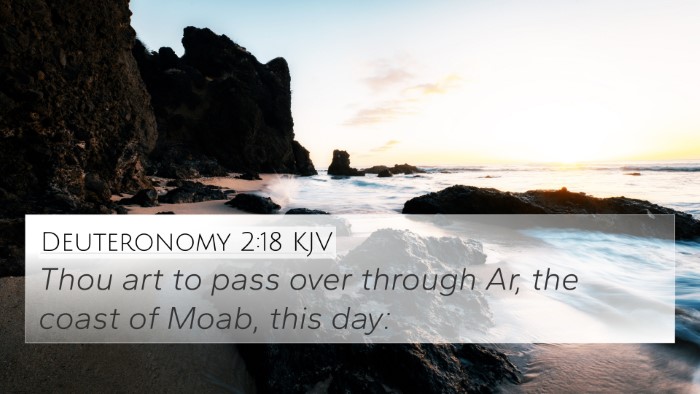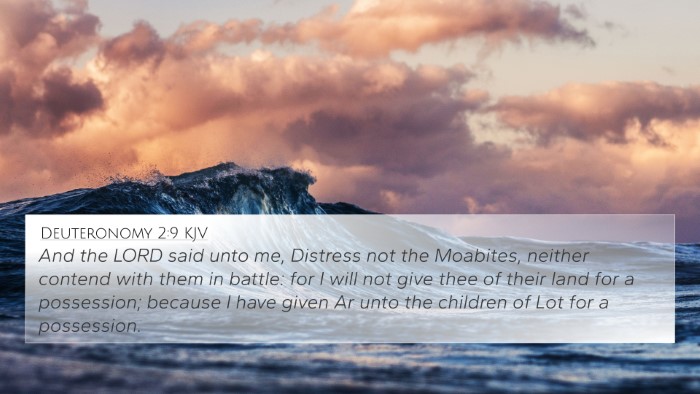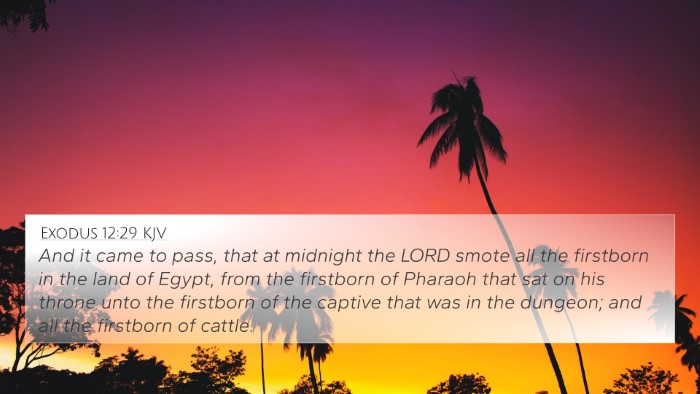Understanding Isaiah 15:1
Isaiah 15:1 states, "The burden of Moab. For in the night Ar of Moab is laid waste, and brought to nothing; in the night Kir of Moab is laid waste, and brought to nothing." This verse introduces a prophecy against Moab, a nation that historically opposed Israel. The term "burden" indicates a heavy, prophetic statement concerning judgment and destruction.
Key Insights from Commentaries
The following insights combine perspectives from public domain commentaries, providing a deeper understanding of the verse:
Matthew Henry's Commentary
Matthew Henry notes that this prophecy is a "burden," indicating a message of doom. It expresses the total devastation of Moab, particularly cities like Ar and Kir, which were significant centers of Moabite life. This destruction serves not only as a judgment on Moab's sins but also as a stark warning to surrounding nations about the consequences of disobedience to God.
Albert Barnes' Commentary
Albert Barnes emphasizes the historical context, explaining that Moab was a long-time adversary of Israel. The specific mention of "night" symbolizes suddenness and the unexpected nature of this judgment. The waste brought upon Moab reflects both a physical and spiritual decline, illustrating consequences for nations that turn away from God.
Adam Clarke's Commentary
According to Adam Clarke, the prophecy eloquently depicts the impending agony of Moab. The cities mentioned are representative of the nation, alluding to a complete and utter destruction that would eliminate Moab's glory and might. Clarke also points out the necessity of understanding God's sovereignty over nations and the moral implications of their actions.
Bible Verse Cross-References
This verse is linked to various other passages that provide additional context and insight:
- Isaiah 16:1-5 - Further elaborates on the judgment of Moab.
- Jeremiah 48:1-47 - Details God's judgment against Moab, reinforcing Isaiah's prophecy.
- Ezekiel 25:8-11 - Discusses the anger of the Lord against Moab.
- Numbers 21:29 - Context of Israel's relationship with Moab.
- Amos 2:1 - Judgement against Moab for transgressions.
- Micah 4:10 - Prophecy regarding judgment on the nations including Moab.
- Zephaniah 2:8-10 - Future judgment upon Moab and its pride.
Connections Between Bible Verses
Understanding this verse requires examining its thematic connections:
- God's Sovereignty: The destruction of Moab serves as a reminder of God's control over the nations.
- Moral Consequences: Historical accounts of Moab illustrate the repercussions of idolatry and sin.
- Prophetic Consistency: Isaiah's warnings are consistent with other prophetic writings that address nations opposing God's people.
Exploration of Thematic Bible Verse Connections
This verse also engages in inter-Biblical dialogue regarding divine judgment:
- Judgment Themes: Many scriptures explore the theme of divine judgment, encouraging readers to consider their own lives.
- Promised Restoration: Following judgment, prophets often reveal God's promise of restoration for the faithful.
Tools and Methods for Bible Cross-Referencing
Using tools like Bible concordances and Bible cross-reference guides can enhance one's understanding of scripture by illuminating connections and thematic resonance. Here are some methods:
- Verse Mapping: Charting out verses and their relationships can provide clarity.
- Thematic Studies: Identifying themes across different books helps in recognizing overarching messages.
- Sermon Preparation: Utilizing cross-references can support the development of sermon themes and messages.
Comparative Bible Verse Analysis
Through comparative analysis of verses like Isaiah 15:1 and associated texts, one can draw parallels that illuminate the narrative of judgment and hope found throughout scripture.
In conclusion, Isaiah 15:1 highlights the seriousness of divine judgment on nations like Moab that diverge from God's ways. It connects deeply with other biblical texts and themes, providing a rich ground for study and reflection in a believer's journey.
